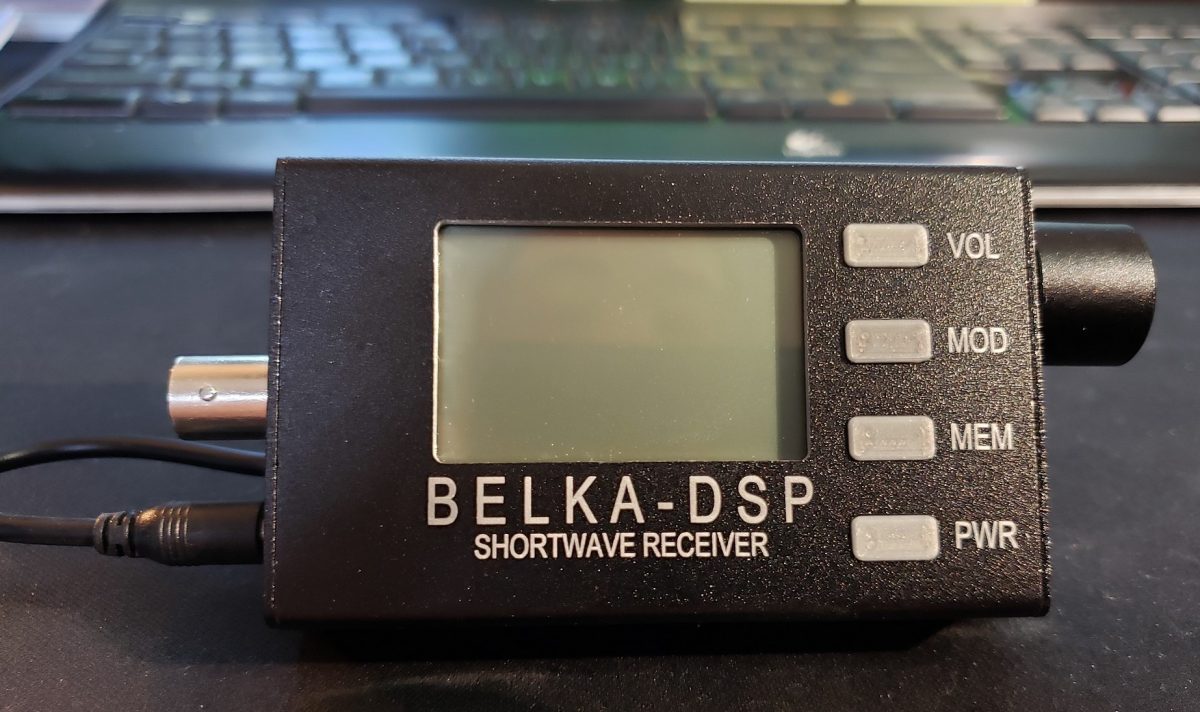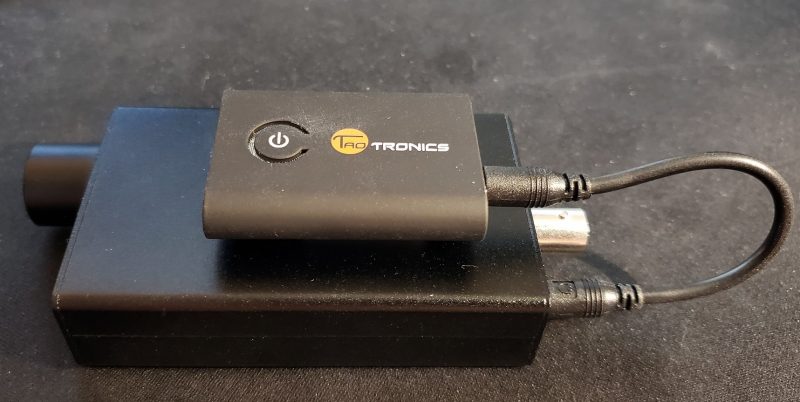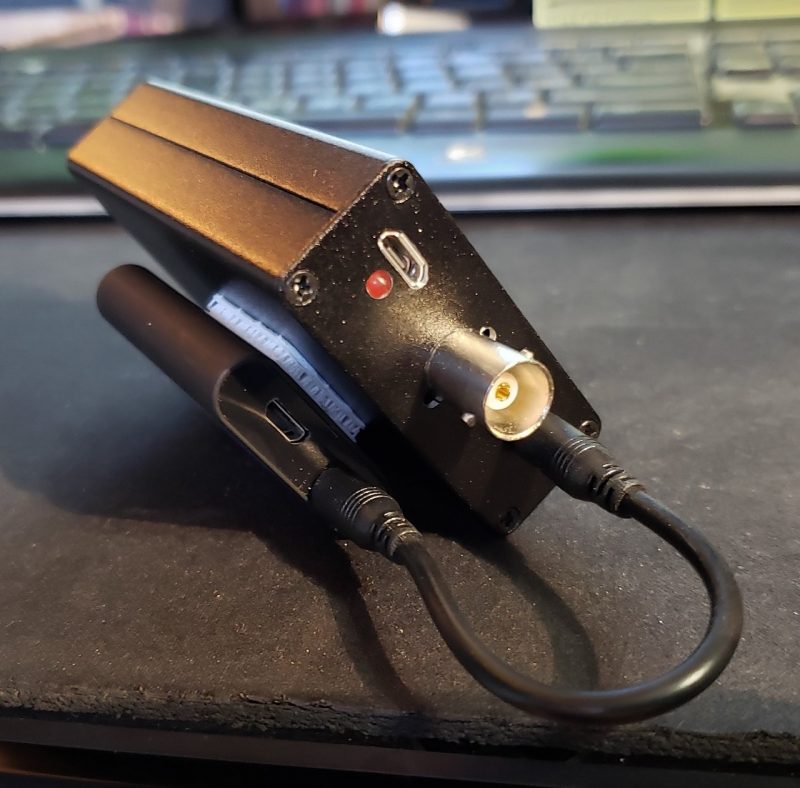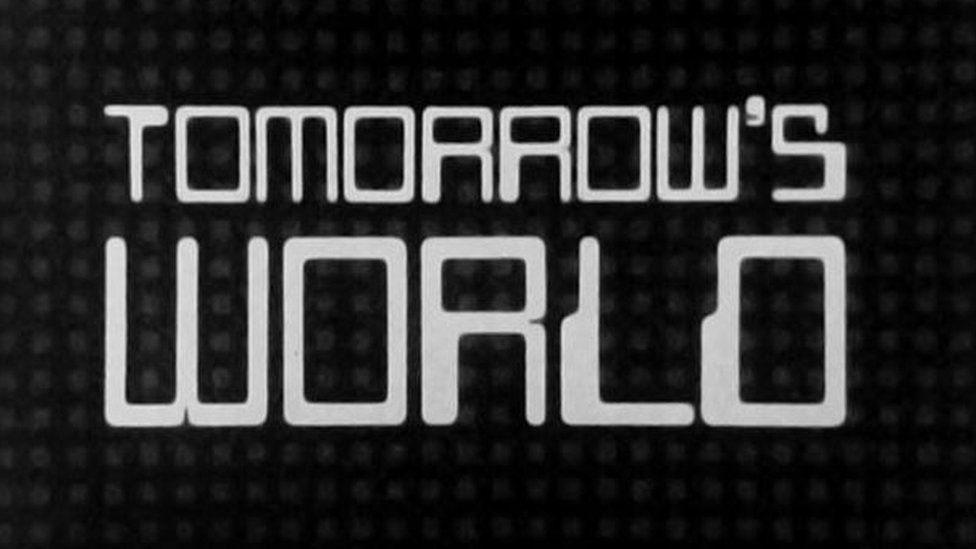 Many thanks to SWLing Post contributor, Dennis Dura, for sharing the following video:
Many thanks to SWLing Post contributor, Dennis Dura, for sharing the following video:
Yet another “Wacky Wake-Up Crew” recording
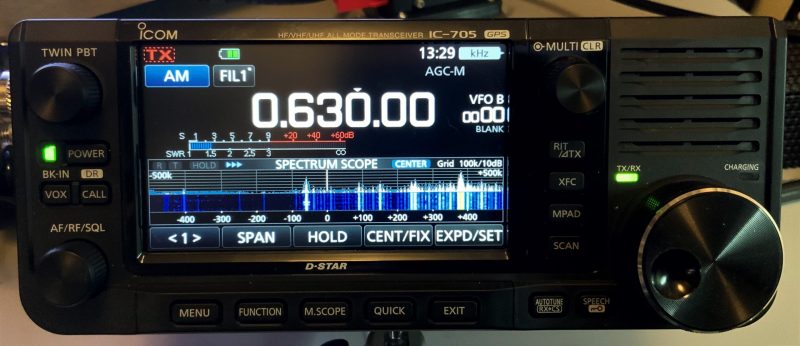 After posting recordings of 630 AM WAIZ’s “Wacky Wake-Up Crew” recently, a few readers asked for yet another recording, so here you go!
After posting recordings of 630 AM WAIZ’s “Wacky Wake-Up Crew” recently, a few readers asked for yet another recording, so here you go!
I made this recording yesterday morning (December, 16, 2020), starting around 5:30 EST with the Icom IC-705 connected to my homebrew NCPL antenna:
FTIOM & UBMP; 100kw Marathon December 20-26
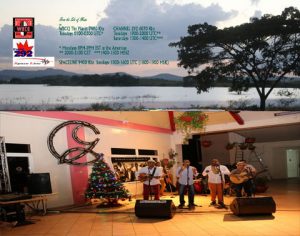
From the Isle of Music, December 20-26:
This week, we present a Navidad Cubana with Cuban Christmastime music from the past several decades.
The broadcasts take place:
1. For Eastern Europe but audible well beyond the target area in most of the Eastern Hemisphere (including parts of East Asia and Oceania) with 100Kw, Sunday 1500-1600 UTC on SpaceLine, 9400 KHz, from Sofia, Bulgaria (1800-1900 MSK)
2. For the Americas and parts of Europe, Tuesday 0100-0200 on WBCQ, 7490 kHz from Monticello, ME, USA (Monday 8-9PM EST in the US).
3 & 4. For Europe and sometimes beyond, Tuesday 1900-2000 UTC and Saturday 1300-1400 UTC on Channel 292, 6070 kHz from Rohrbach, Germany.
Our Facebook page is https://www.facebook.com/fromtheisleofmusic/
Our V-Kontakte page is https://vk.com/fromtheisleofmusic
Our Patreon page is https://www.patreon.com/tilford

Uncle Bill’s Melting Pot, December 20-26:
In episode 196, we listen to some unusual Christmastime music (including some parodies) from various countries.
The transmissions take place:
1.Sunday 2300-0000 (6:00PM -7:00PM EST) on WBCQ The Planet 7490 kHz from the US to the Americas and parts of Europe
2. Tuesday 2000-2100 UTC on Channel 292, 6070 kHz from Rohrbach, Germany for Europe.
3. Saturday 0800-0900 UTC on Channel 292, 9670 kHz from Rohrbach, Germany for Europe.
Our Facebook page is https://www.facebook.com/UncleBillsMeltingPot/
Our V-Kontakte page is https://vk.com/fromtheisleofmusic
Our Patreon page is https://www.patreon.com/tilford
100kw Marathon, Channel 292, Germany, 6070 kHz, December 26:
December 26 from 0900-1430 UTC, 6070 kHz at 100kw from Moosbrunn
Repeats 1430 UTC on 3955 kHz m Rohrbach at 10kw
This five and 1/2-hour event organized by Max Berger of SM Radio Dessau features ten different programs on Channel 292 who collaboratively bought time on Moosbrunn’s 100kw transmitter. This is an excellent chance to hear programs many listeners may not have heard before and listen to some of your favorites at 100kw. The program later repeats from Rohrbach on 3955 kHz from 1430 UTC using 10kw with time donated by Channel 292.
From the Isle of Music and Uncle Bill’s Melting Pot will share an hour from 1200-1300 UTC.
Alan Roe’s Guide to 2020 Holiday Broadcasts on Shortwave
 Many thanks to SWLing Post contributor, Alan Roe, who writes:
Many thanks to SWLing Post contributor, Alan Roe, who writes:
I have been collating a list of programming on shortwave over the forthcoming holiday period. The programmes listed are predominantly, but not necessarily, seasonal. Here is the first edition of this compilation, which will be updated and redistributed if and when more information becomes available.
Regular weekly music programming, where no special advance programme information has been provided, are not included in this list, but please refer to my Music on Shortwave list also uploaded to the files section.
I hope that you find it useful.
Additions and corrections are most welcome to [email protected]
Best wishes for Christmas and a Happy New Year
Alan Roe, Teddington, UK
Click here to download (PDF). [V4 Update]
This is brilliant, Alan! Thank you so much for curating this guide and sharing it!
New Space Weather from VLF Communications
Image Credit: NASA
As an amateur astronomer & SWL enthusiast, I always find it interesting when both disciplines overlap. I came across an article on the Internet posted by sciencealert.com of such an overlap.
The Earth is surrounded by two radiation belts (Van Allen Belts). But something strange has been discovered. After NASA launched a space probe in 2017 – and after analyzing collected data – the two Van Allen belts have been pushed farther away from Earth by a third “area”. That area is a “man-made barrier” created by Very Low Frequency (VLF) radio communications.
Scientists postulate this new man-made VLF barrier, a form of man-made Space Weather, has pushed the two radiation belts farther from Earth. And as such, this has created a “protective bubble” from potentially dangerous solar discharges and their radiation streams.
For those interested, you can read the full article here..
Guest post by Troy Riedel
Bluetooth adapter that also serves as a Belka stand
Many thanks to SWLing Post contributor, Joe Patti (KD2QBK), who writes:
Not sure anyone would be interested, but in using a Bluetooth adapter with my Belka I inadvertently came up with a little stand for it.
I attached the adapter to the back of the radio with a piece of plastic 3M Command picture hanger strip. It props up the little radio at exactly the right angle.
Love the blog!
Thank you, Joe! Looks like this is the Bluetooth adapter you’re using. What a clever way to have your Bluetooth adapter do double duty! Also, I’m so glad you enjoy the Post! Thanks for sharing your tip!
Video: Physicist reminisces about Arecibo Radio Telescope
Many thanks to SWLing Post contributor, TomL, who shares the following:
I came across this youtube video about a physicist who worked there in his early years and gives this tribute to his time there. Maybe some others would like to see it too:
Amazing! Thank you, Tom!


